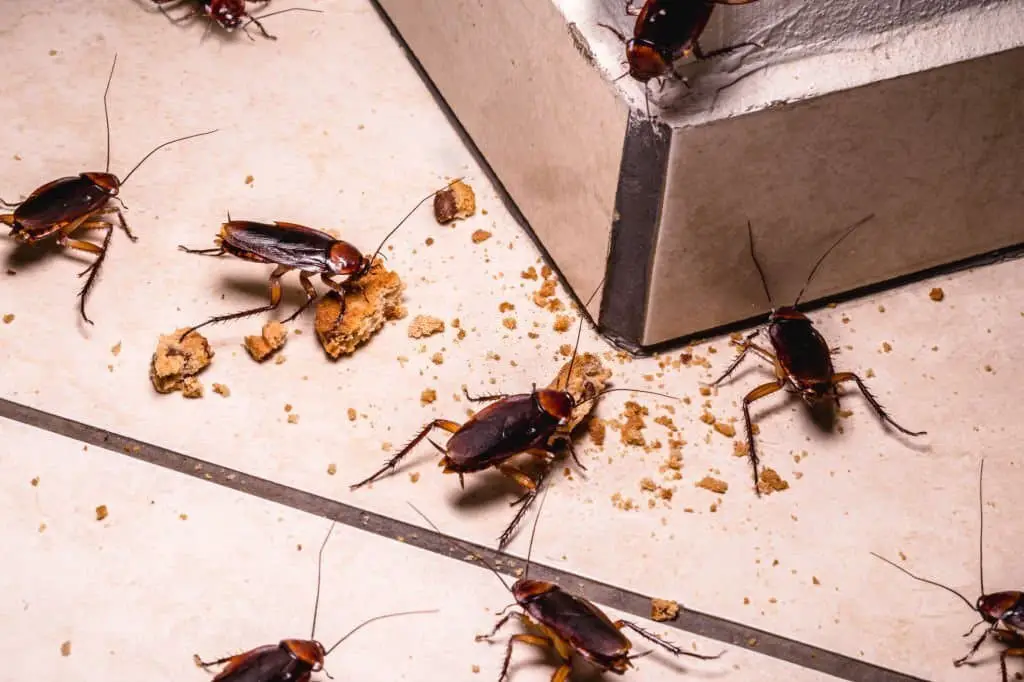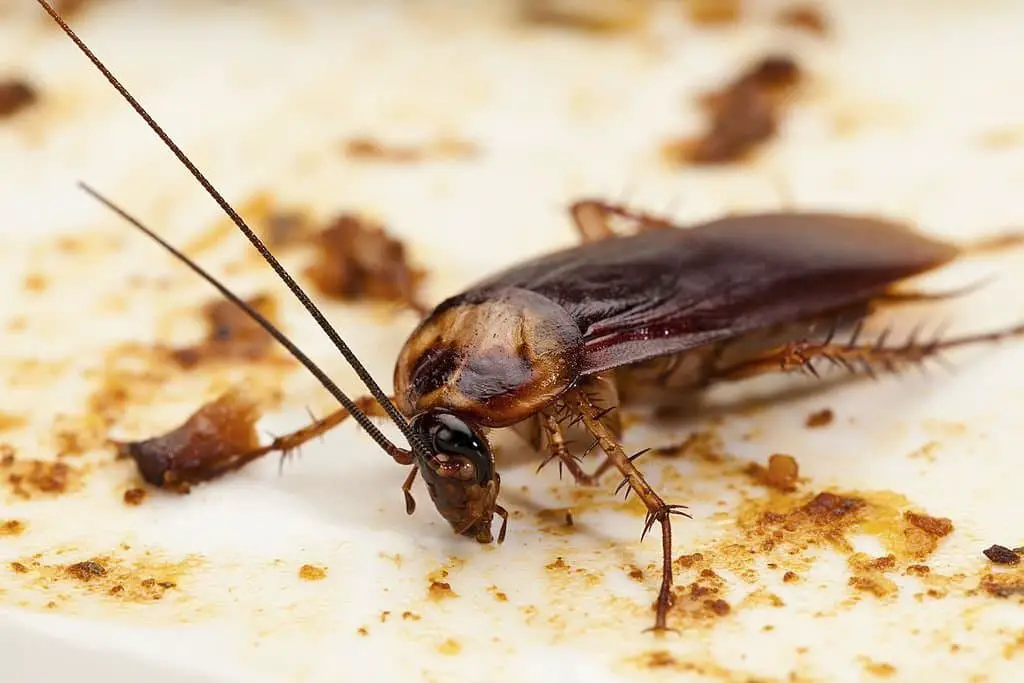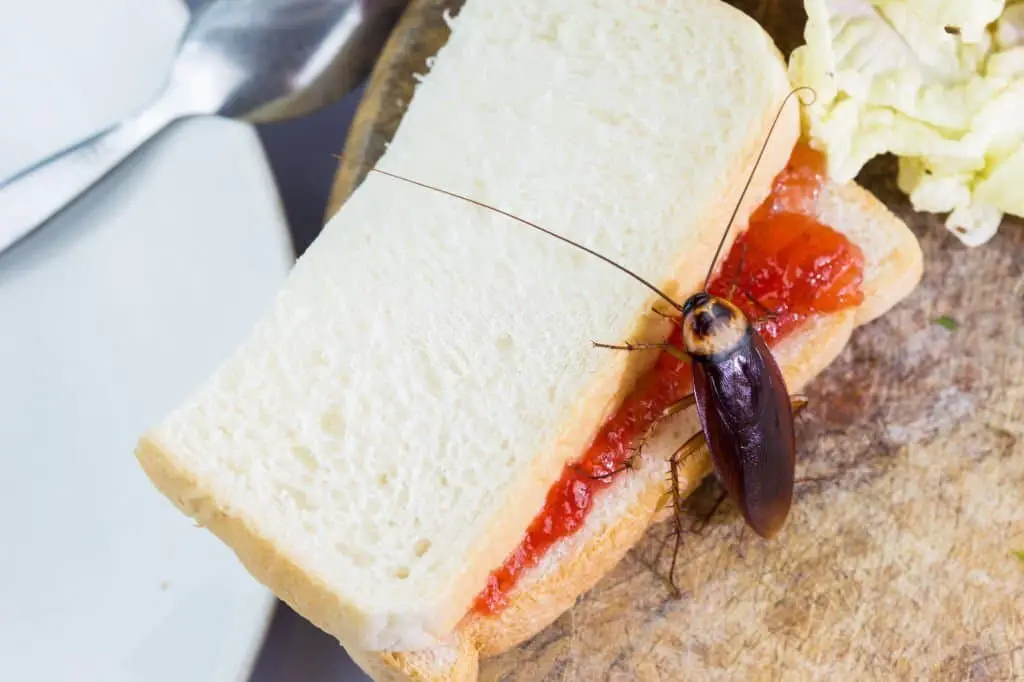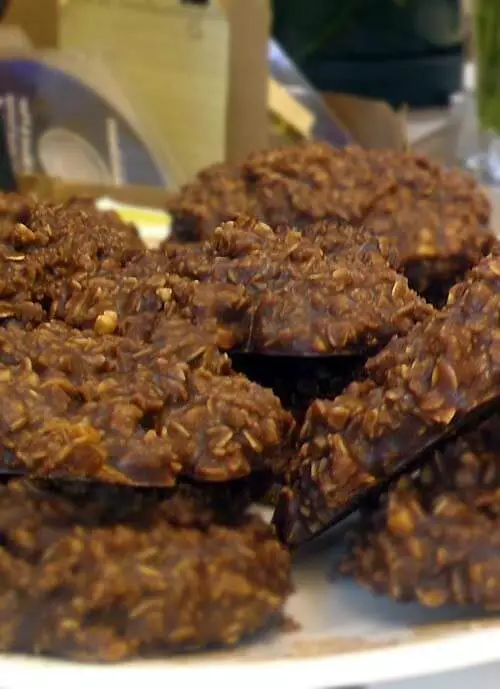What Do Cockroaches Eat? A Look At The Diet Of These Pesky Critters
Cockroaches are notorious for their insatiable appetites, and most people are unaware of the sheer variety of foods they consume. These omnivorous creatures will devour everything from plant matter to animal products, making them one of the most adaptable species on the planet. In this article, we’ll delve into the world of cockroach cuisine, exploring what they eat in the wild, their favorite snacks, and even some surprising human-made treats that they can’t resist.
We’ll also touch on some of the benefits of having these critters around, despite their reputation as pests. So, join us on this journey to uncover the culinary secrets of the cockroach world.
What do cockroaches eat?

While cockroaches are notorious for their ability to adapt to various environments, their dietary preferences are remarkably broad. These scavengers thrive on a diverse range of food sources, with a particular fondness for starchy items, sugary treats, greasy morsels, and meat-based snacks. As opportunistic eaters, they’ll capitalize on whatever sustenance is available, exploiting the abundance around them.
Interestingly, cockroaches can survive for several weeks without consuming any food, but their dependence on water becomes more pronounced – they typically require a steady supply to thrive. Not surprisingly, the majority of their foraging activities take place at night, as they seek out crumbs and scraps in the cover of darkness. While not discerning eaters per se, cockroaches do exhibit a preference for starchy foods, sweets, grease, and meat, which form the backbone of their omnivorous diet.
Do cockroaches eat poop?
Contrary to popular belief, cockroaches aren’t dirty creatures at all. On the contrary, they prioritize personal hygiene and engage in regular grooming sessions to maintain their cleanliness. In fact, they’re so meticulous that they’ve even been known to consume their own waste as part of their self-cleaning routine.
While this fastidiousness might be admirable, it’s worth noting that cockroaches are also opportunistic omnivores with a voracious appetite for a wide range of edible materials – including your kitchen scraps!
What do cockroaches eat in the wild?
In their natural habitat, cockroaches are versatile eaters that take advantage of whatever food sources they can find. Their diet is incredibly varied and includes items such as decaying plant matter, rotting wood, animal waste, and even other insects. Despite their reputation as pests, cockroaches actually fulfill a crucial ecological function by assisting in the decomposition process.
What is the cockroach’s favorite food?

Cockroaches are notorious scavengers that will devour almost anything in sight. Their top picks, however, include sugary treats, fatty substances, and savory meat morsels. To successfully banish these unwanted critters, it’s essential to eliminate their primary food sources. Since cockroaches are strongly drawn to unconsumed victuals, maintaining a spotless kitchen is crucial.
Swiftly wipe up any spills that occur, refrain from leaving dirty dishes in the sink, and store sustenance in sealed containers. Furthermore, ensure garbage cans have tight-fitting lids to prevent unwanted visitors. Eradicating cockroaches demands persistence and patience, but by removing their food sources, you’ll be well on your way to achieving a cockroach-free environment.
What do you feed cockroaches to?
While cockroaches are opportunistic eaters, it’s essential to be mindful of what you’re feeding them. A general rule of thumb is to avoid offering dairy products, sweets, oily foods, or meat, as these can cause health issues in roaches. Instead, focus on providing a balanced diet rich in vegetables and grains. This will not only support their overall well-being but also promote a healthy and thriving colony.
How do cockroaches eat?
Cockroaches are opportunistic feeders that thrive on a diverse diet. While they primarily consume plant matter and decaying organic substances, their omnivorous nature allows them to adapt to various environments. In the wild, they’ll scavenge for sustenance, devouring carcasses or even their own kind. This adaptability is facilitated by their efficient digestive system, comprising mouthparts designed for chewing and a gut capable of breaking down an extensive array of food sources.
Additionally, their gastrointestinal tract houses beneficial bacteria that aid in nutrient extraction. Cockroaches tend to consume small, frequent meals throughout the day, with occasional water intake. Prolonged fasting is not uncommon, as they’ve evolved to survive without sustenance or hydration for extended periods. Their attraction to sugary and starchy substances drives their feeding behavior, alongside a willingness to consume other insects and deceased animals.
Do cockroaches eat other cockroaches?
Despite the age-old mystery surrounding their eating habits, theories abound about what drives cockroach dietary decisions. Some speculate that these resilient creatures are opportunistic omnivores, consuming fellow roaches when hunger strikes. Others propose a more nuanced approach, suggesting that they only indulge in cannibalism when their usual fare is compromised by illness or injury.
Do cockroaches eat other dead cockroaches?
Scientists have shed light on a peculiar habit of cockroaches: they consume dead cockroaches. In fact, studies suggest that these insects prefer the taste of their own kind over other food sources. A notable study discovered that when given a choice, cockroaches will opt for dead roaches over living ones. Furthermore, the researchers found that starved cockroaches are more likely to indulge in a meal of dead roaches.
While it’s true that cockroaches may help clean up carcasses, this behavior won’t significantly impact the overall population. If you’re struggling with a cockroach infestation, relying on them to self-regulate isn’t a viable solution. Instead, you’ll need to take proactive measures to effectively eliminate the problem.
Why do cockroaches eat each other?
While scientists have long been fascinated by the remarkable resilience of cockroaches, one peculiar aspect of their behavior has left many scratching their heads: cannibalism. Despite their ability to survive without sustenance for extended periods and withstand physical trauma, cockroaches will occasionally turn on each other, devouring their own kind. What drives this unsettling behavior?
Some researchers suggest that stress plays a role, with loud noises or bright lights triggering cockroaches to consume one another as a coping mechanism. Others propose that the pheromones produced by cockroaches themselves may be the culprit, attracting them to each other and prompting cannibalistic behavior. While the exact motivations behind this phenomenon remain unclear, it’s evident that cockroaches are not above consuming their own kind when circumstances arise.
So, if you ever stumble upon a cockroach indulging in an insectivorous feast, remember: in the world of these tenacious creatures, even survival can be a gruesome affair.
What do hissing cockroaches eat?
Hissing cockroaches are opportunistic feeders, with a diet that encompasses both plant-based and animal-derived food sources. This eclectic eating habit allows them to thrive in environments where sustenance is scarce or readily available. In their natural habitat, they forage for nutrients in decaying organic matter, such as rotting logs, under rocks, and within leaf litter.
While they are not typically domesticated pets, some enthusiasts choose to sustain them with a diet that includes dog or cat food, fruits, and vegetables. It’s essential to provide a varied diet to ensure these omnivores receive the necessary nutrients for optimal health and well-being. For those considering keeping hissing cockroaches as pets, it’s crucial to conduct thorough research on their dietary requirements to guarantee a happy and healthy coexistence.
What do giant hissing cockroaches eat?
In contrast to their fearsome reputation, giant cockroaches are relatively simple to care for in captivity. Their dietary needs are surprisingly unremarkable, with these omnivores consuming a wide variety of foods. In their natural habitat, they tend to feast on decomposing plant matter and the occasional dead insect, indicating that their culinary tastes are more humble than one might expect.
What do Madagascar hissing cockroaches eat?
Native to Madagascar, Madagascar hissing cockroaches earn their name from a distinctive hissing sound they produce when threatened. This unique feature also earns them the nickname ‘sabertooth cockroaches’ due to their impressive mandibles. As omnivores, these roaches have an eclectic appetite that spans both plant and animal matter.
Their diet is characterized by a willingness to consume a wide variety of substances, including fruits, vegetables, deceased insects, bird droppings, and even small mammals like rodents and bats.
Do cockroaches eat cardboard?
Cockroaches often get a bad rap for being dirty, but in reality, these creatures are surprisingly clean and particular about their surroundings. They spend a significant amount of time grooming themselves and are quite discerning when it comes to their food sources. So, what do cockroaches like to munch on? The answer is that they’re omnivores, which means they’ll eat just about anything that’s edible.
Their sweet tooth is particularly notable, as they have a weakness for starchy and sugary foods. In fact, their diet can be quite eclectic, with reported favorites including book bindings and candy wrappers. While it’s theoretically possible for cockroaches to consume cardboard – after all, it’s made from plant-based materials like paper – it’s not exactly their go-to snack.
Cardboard doesn’t provide the essential nutrients they need to thrive, so they’ll typically only resort to eating it when they’re desperate or other food sources are scarce.
Do cockroaches eat sugar?

While it may come as a surprise, cockroaches do indeed have a sweet tooth. They’re drawn to sugary substances and will travel great distances to find them. In fact, their keen sense of smell allows them to detect food from afar. But sugar isn’t the only thing on their menu – they’ll also munch on cheese, bread, and other starchy foods. With an appetite that’s anything but discerning, cockroaches have been known to feast on rotting food when other options are scarce.
What do German cockroaches eat?
German cockroaches, notorious for their voracious appetites, have an insatiable hunger for a wide variety of foods. Their menu preferences lean heavily towards starchy delights, sweet treats, greasy snacks, and meaty morsels. Interestingly, these insects can survive for up to a month without sustenance, but their resilience in the face of drought is significantly shorter-lived, lasting only about two weeks without access to water.
What drives German cockroaches to seek out food sources?
The answer lies in their acute senses, particularly their olfactory system. They are drawn to the aromas emanating from food, which serves as a potent attractant. Additionally, these pests are also attracted to warmth, light, and vibrations, making them adept at tracking down edible morsels.
Once they’ve discovered a food source, cockroaches will consume their fill before returning to the safety of their hiding places.
What do American cockroaches eat?
American cockroaches exhibit a diverse appetite, with an unrelenting penchant for consuming a wide range of substances. While they have a sweet tooth and a weakness for starchy foods, their menu also includes meats – albeit with a preference for carbohydrates. What’s more, these insects are one of the few that can break down cellulose, granting them access to plant material and decaying wood as a food source.
In fact, American cockroaches are known to practice cannibalism, feeding on other cockroach species. This adaptability in their diet allows them to thrive in various environments, serving as an integral part of the food chain for numerous animals such as lizards, frogs, birds, and mammals. Furthermore, they have no qualms about consuming non-edible items like soap, glue, or even hair, showcasing their remarkable ability to survive on a diverse range of sustenance.
What do Dubia cockroaches eat?

Dubia cockroaches are opportunistic feeders that will consume a wide variety of substances. Their diet is characterized by an absence of dietary restrictions, as they will eat anything from living insects to decaying matter. While their appetite is not particularly discerning, there are certain food sources that they seem to prefer over others.
Fruit appears to be a staple in the diet of dubia cockroaches.
They have a particular fondness for soft fruits like bananas and pears, but they will also consume harder fruits like apples and oranges. In addition to fruit, these roaches also enjoy munching on vegetables. Leafy greens like lettuce are a favorite, as well as root vegetables like carrots and celery.
Insects also feature prominently in the diet of dubia cockroaches. Crickets, mealworms, and wax worms are all fair game for these roaches.
What do flying cockroaches eat?

While flying cockroaches are drawn to light sources like lamps, their attraction to bright objects isn’t the only thing that gets them moving. Sweet smells also play a significant role, which is why they might be found hovering around fruit or sugary substances. Their diet may vary depending on what’s available, but in general, they thrive on decaying organic matter such as dead leaves and rotting wood. However, it’s not uncommon for them to snack on live insects if the opportunity arises.
If you’ve got a flying cockroach taking up residence in your home, chances are it’s found its way into your trash can or some other source of decaying matter.
Do cockroaches eat coffee grounds?
While it may come as no surprise to some, cockroaches have a peculiar affinity for coffee grounds. In reality, their taste preferences extend far beyond just coffee, with a penchant for anything bearing the signature flavor of caffeine – be it coffee beans, tea leaves, or even the sweet allure of chocolate.
The unmistakable aroma of freshly brewed coffee is particularly potent in drawing these unwanted visitors to their source, as evidenced by their tendency to congregate near coffee pots and grinders.
Do cockroaches eat hair?
Cockroaches’ dietary preferences are often misunderstood, as they’re known to consume a wide range of materials. While hair is technically on the menu, it’s not their go-to snack. In fact, these insects typically don’t actively seek out hair as a food source. However, in the absence of other sustenance options, they may resort to consuming hair, paper, or even leather.
So, if you’re concerned about cockroaches munching on your locks, take heart – it’s only likely to happen if their usual food sources are depleted.
Do cockroaches eat bird seed?
Cockroaches are often mistakenly thought to have a taste for bird seed, but this couldn’t be further from the truth. As omnivores, they’ll consume almost anything, including human food, plants, and other insects. While their diet may not necessarily exclude seeds entirely, decaying organic matter is actually their primary source of sustenance. So, while it’s understandable you might not want to share your bird seed with a cockroach, the likelihood of them even wanting it is slim.
Do cockroaches eat garden plants?

Cockroaches, notorious for their adaptability, will feast on a wide variety of food sources, including fruits, vegetables, and other insects. If you’re a gardener, it’s crucial to remain vigilant against these unwanted visitors, as they can quickly devastate your crops if left unchecked.
To deter cockroaches from invading your garden, start by keeping the area spotless. Remove any fallen fruit or vegetables, as their sweet aroma will attract cockroaches like a beacon.
This simple step can go a long way in preventing infestations.
In addition to cleaning up after meals, you can also employ insecticidal soap or diatomaceous earth around the perimeter of your garden. These natural deterrents create a barrier that cockroaches must cross, making them less likely to enter your garden in the first place.
Finally, maintain optimal moisture levels for your plants.
Cockroaches are drawn to dry, dusty conditions, so by keeping your plants well-watered, you’ll make your garden a less appealing destination for these unwanted critters.
Do cockroaches eat grass?
While it’s a common misconception that cockroaches feed on grass, they’re actually drawn to it as a safe haven. The proximity of their habitats is largely due to the fact that grass provides them with protection from predators and humans. Furthermore, the moisture content in the blades helps maintain their hydration levels. Although cockroaches don’t consume grass itself, they have been known to graze on softer plant matter, particularly fruits and vegetables.
So, if you spot a roach in your garden, it’s likely due to its pursuit of other edible sources, rather than a taste for the lawn.
Do cockroaches eat fleas?
Cockroaches are infamous for being opportunistic feeders, capitalizing on whatever sustenance comes their way. This adaptability extends to consuming even tiny morsels like fleas. Although they don’t actively seek out these tiny insects, if the opportunity arises, cockroaches will seize it and indulge in a flea-sized snack.
Do cockroaches eat leather?
When it comes to a cockroach’s culinary preferences, leather is definitely on the menu. These pesky insects are known to devour anything containing protein or cellulose, including paper and clothing. They have a particular fondness for starchy foods like bread and pasta, which make up a significant portion of their diet. If you’re dealing with a cockroach infestation, you may be surprised to find them snacking on your clothes or leaving holes in your paper products.
Moreover, they can cause considerable damage to leather goods by chomping away at them. In such cases, it’s essential to tackle the problem head-on and eliminate the unwanted critters as soon as possible to prevent further destruction.
Do cockroaches eat mold?
Cockroaches have a peculiar appetite – they consume mold, often drawn to the humid environments where it thrives. These unwelcome pests will readily devour moldy food scraps or decaying organic matter. Although this habit doesn’t typically pose issues for individuals without allergies or respiratory concerns, people with sensitivities may experience adverse reactions when cockroaches and mold coexist in their surroundings.
Do cockroaches eat cat food?
Cockroaches are notorious for their insatiable appetite, and cat food is no exception. As scavengers, they’ll devour just about anything in sight, including spoiled and decaying matter. If a bowl of cat chow sits out unattended, it’s only a matter of time before a cockroach discovers its savory aroma and starts chomping away.
While the presence of cockroaches snacking on cat food might not be a pressing concern, maintaining a clean and clutter-free home is crucial.
These unwanted critters can harbor diseases and spread bacteria, making it essential to keep them at arm’s length from your edible supplies.
Do cockroaches eat human flesh?
The notion that cockroaches will consume human flesh has sparked debate and speculation. Proponents argue that these resilient insects will only resort to cannibalism when they’re facing starvation, whereas others suggest a predilection for rotting flesh or dead skin. While some claim to have awoken to find cockroaches feasting on their person, the veracity of such accounts is unclear, leaving the question of whether these pests actually indulge in human sustenance shrouded in mystery.
Do cockroaches eat onions?
While it may come as a surprise, the answer is indeed yes – cockroaches can consume onions. But their culinary inclinations don’t stop there. These adaptable insects are capable of devouring a diverse range of foodstuffs, encompassing not only additional vegetables like tomatoes and potatoes but also fruit, meat, and even scraps of garbage.
Do cockroaches eat peanut butter?
The notion that cockroaches will devour anything and everything is a notion many people hold. While it’s true they’ll consume almost any substance, the answer to whether they can eat peanut butter is a resounding yes. However, it’s crucial to consider the consequences of feeding them such treats. Peanut butter is detrimental to their health due to its high levels of fat and sugar, leading to indigestion issues.
In reality, cockroaches thrive on a diet consisting of insects and small animals, making peanut butter a less than ideal snack.
Do cockroaches eat crickets?
While cockroaches are notorious for their adaptability when it comes to finding sustenance, their diet typically consists of plant-based materials. However, they’re not averse to snacking on other insects like crickets if the opportunity arises. In fact, cockroaches have been known to indulge in crickets as a supplementary food source when their primary options are scarce.
It’s crucial to recognize that this occasional indulgence is often a result of an underlying issue with their preferred food supply. If you’re noticing a cricket infestation, it’s likely that the cockroaches are struggling to find more appealing alternatives, making them more likely to turn to crickets as a coping mechanism.
Do cockroaches eat mosquitoes?
While the notion of whether cockroaches consume mosquitoes is intriguing, it’s crucial to consider their eating habits and preferences. As scavengers, cockroaches primarily feed on dead insects, which suggests they wouldn’t actively hunt down a mosquito, given its predatory nature. Furthermore, cockroaches are known to be attracted to sweet substances, whereas mosquitoes are drawn to blood, indicating distinct dietary inclinations.
These differences in feeding behaviors and preferences imply that cockroaches and mosquitoes might not intersect in their search for sustenance.
Do cockroaches eat vegetables?

While it’s true that cockroaches have a reputation for scavenging everything in sight, their diet is actually quite diverse. As omnivores, they will consume both plant-based and animal-based foods. In terms of vegetation, cockroaches have been known to feast on leaves and other parts of plants and vegetables.
Do cockroaches eat rubber?
The notion that cockroaches can consume any substance has led many to wonder if this includes rubber. The truth is, they can indeed feed on a wide range of materials, including synthetic products like rubber.
Do cockroaches eat paper?
While it’s true that cockroaches may consume paper in extreme circumstances, such as when they’re famished and nothing else is available, their dietary preferences typically skew towards more palatable options like decaying organic matter, discarded food waste, or even the occasional deceased insect. This being said, if a cockroach finds itself in a situation where its usual food sources are scarce, it will not hesitate to turn to paper as a last resort.
Do cockroaches eat termites?
While cockroaches have a reputation for devouring a wide variety of substances, there’s no conclusive evidence to suggest they target termites as part of their diet. In fact, these two insects often coexist harmoniously, with no apparent predator-prey dynamic at play. It seems that any perceived interest in consuming termites on the part of cockroaches is largely speculative, and it’s unlikely we’ll find them engaging in termite-snacking behaviors in the wild.
Do cockroaches eat blood?
While it’s a common misconception that cockroaches feast on blood, the truth is that they’re actually drawn to the iron content in hemoglobin. This affinity for iron explains why these pests often congregate near areas with abundant food sources containing blood, such as slaughterhouses or medical facilities. In addition to their blood-based preferences, cockroaches also indulge in a diverse diet consisting of decaying plant matter, dead insects, and even fecal matter.
Do cockroaches eat spiders?
Cockroaches, being opportunistic feeders, won’t discriminate between potential meals. If they’re hungry enough, they’ll gladly devour spiders as part of their omnivorous diet. Although spiders might not be at the top of their menu, cockroaches will still consume them if no other food sources are available.
Do cockroaches eat humans?
While it’s a common misconception that cockroaches prey on human flesh, the truth is far from it. In reality, these unwanted visitors are more interested in feasting on dead skin cells and hair, which provide them with essential nutrients. What drives their attraction to certain areas, such as kitchens and bathrooms, is the presence of moisture-rich food sources that sustain their survival. As a result, you’re likely to find cockroaches congregating near these spots.
Do cockroaches eat ants?
Cockroaches are notorious for their appetite, consuming a vast array of substances – including ants. Their omnivorous nature means they’ll feast on whatever’s available, with no qualms about devouring fellow roaches if the situation calls for it.
Do cockroaches eat clothes?
While it may seem absurd, cockroaches can indeed consume clothes. Their preference, however, lies in the natural fibers found in garments like cotton and wool. Synthetic materials such as polyester and nylon are less likely to be on their menu. These pests are drawn to clothing bearing food stains or residual scents, making them more inclined to feast on fabrics with a history of harbouring edible morsels.
Do cockroaches eat dead skin?
Cockroaches are notorious for their insatiable appetite, feasting on a wide range of substances. One of their preferred dishes is surprisingly human in origin – dead skin cells. While this notion may not sit well with us humans, it’s an essential part of the cockroach’s survival strategy. As scavengers, they’ll consume whatever is available, including the flakes that naturally fall from our skin.
The takeaway here is that if you’re struggling with a cockroach infestation, keeping your environment spotless will be crucial in discouraging these unwanted visitors. By eliminating sources of food, such as dead skin cells, you’ll reduce the likelihood of attracting more roaches and exacerbating the problem.
Do cockroaches eat worms?
While it may come as no surprise, cockroaches are indeed opportunistic feeders, with an insatiable appetite for a wide range of food sources. This includes worms, which are often the root cause of infestations in homes. As such, if you’re experiencing issues with worms in your home, it’s possible that cockroaches are playing a significant role in perpetuating the problem.
Do cockroaches eat wood?
While it’s true that cockroaches can consume wood, this isn’t their preferred menu item. In fact, they’re opportunistic feeders that will take advantage of any available food source. However, if given the option, they’d rather dine on something else entirely. This means that using wood as bait to manage a cockroach infestation might not be the most effective approach. Instead, consider exploring alternative options for tackling your problem.
Conclusion
In reality, cockroaches are notorious for their voracious appetites, with no discerning tastes when it comes to food sources. They will feed on both organic and inorganic matter, making it a significant challenge to manage infestations effectively. The fact that they can subsist on unexpected sustenance only compounds the issue.
For individuals grappling with cockroach problems, seeking professional guidance from a pest control company remains the most effective means of achieving long-term relief.
Related Posts
Cockroaches are often misunderstood creatures, and their swimming abilities are no exception. While they may not be natural swimmers like fish or humans, cockroaches can, in fact, swim for short distances. However, prolonged exposure to water can be detrimental to their survival. When submerged, roaches tend to lose oxygen quickly, making it difficult for them to sustain life underwater. Nonetheless, certain species of roaches are more adept at aquatic environments than others.
In this guide, we’ll delve into the fascinating world of cockroaches and explore how to deal with these pests effectively. Moreover, we’ll uncover the surprising truth about roach flight capabilities and examine what predators prey on them. Finally, we’ll shed light on whether bed bugs share a similar fate as roaches in the water.






